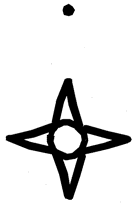Anthropology, Department of

Nebraska Anthropologist
Date of this Version
2025
Document Type
Review
Citation
Nebraska Anthropologist (2025)
Anthropology Department, University of Nebraska-Lincoln
Accessibility-checked PDF
Abstract
Since the field's development, individuals and communities involved in and affected by international forensic investigations have been confronted with many political and ethical dilemmas. The book, Digging for the Disappeared: Forensic Science After Atrocity (2015), by Adam Rosenblatt, attempts to identify and articulate the various debates surrounding humanitarian forensic work. In doing so, the author focuses on four key areas; the purpose of such investigations, the stakeholders and expectations involved, and what may realistically be accomplished. While sympathetic to the perspective of forensic practitioners, Rosenblatt presents the positions of all parties in an unbiased manner, introducing the reader to conflicts spanning continents and decades, and encouraging us to identify relationships between these isolated events. Digging for the Disappeared argues international forensic investigations, both the methods and results, are complex, and the issues surrounding them must be explored and addressed in a holistic manner for the field to continue advancing.


Comments
Copyright 2025, Abigail Vaughn. Used by permission